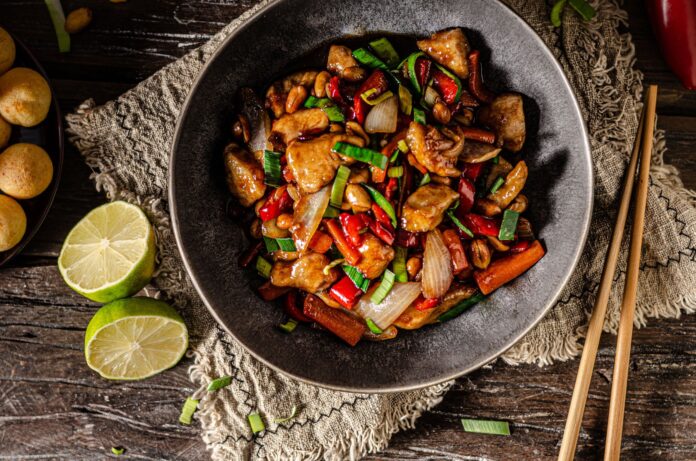Chinese cuisine is a captivating exploration into a world of flavor, tradition, and history. It offers a rich tapestry that stretches back thousands of years, filled with culinary masterworks that are now loved across the globe. When you think of Chinese food, what comes to mind? Perhaps you picture takeout boxes filled with rice and chicken, but the reality is far more intricate and diverse.
Key Takeaways
- Chinese cuisine has a rich history and diverse culinary techniques.
- Many popular Chinese dishes have regional variations.
- Exploring authentic Chinese cuisine offers deeper insights into Chinese culture.
- Essential dishes like Peking Duck have fascinating origins and traditions.
- Every meal tells a story, reflecting societal changes over the centuries.
Delving into Chinese Culinary Heritage
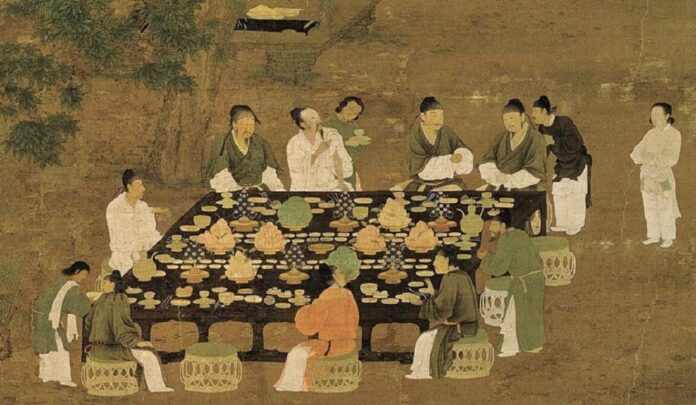
Exploring the historical context of Chinese cuisine reveals deep connections to the country’s values, traditions, and societal structures. The extensive timeline of food practices in China showcases how culinary methods have evolved while adhering to age-old principles. Understanding Chinese food origins can illustrate the development of diverse regional recipes that reflect the unique ingredients and climatic conditions across various provinces.
Understanding the Historical Context of Chinese Cuisine
The historical context of Chinese cuisine reflects an intricate tapestry woven from agricultural practices, philosophical beliefs, and cultural rituals. Food has served as a fundamental element linking people to their ancestry and spiritual beliefs for centuries.
Chinese Food as a Reflection of Culture and Society
Chinese culinary heritage is not only about sustenance; it tells a story of cultural identity and social relations. Each dish often carries symbolic meanings tied to prosperity, happiness, or reunion, thereby enriching dining experiences. The communal aspect of sharing meals underscores the fabric of family and social gatherings within Chinese society.
Additionally, the culinary diversity encompassed within authentic Chinese cuisine challenges misconceptions about its scope, revealing a depth of flavors and techniques that vary dramatically from one region to another.
| Aspect | Description | Examples |
| Culinary Techniques | Traditional methods passed down through generations | Stir-frying, steaming, braising |
| Philosophical Influences | Roots in Confucianism and Daoism | Balance in flavors, harmony in meal preparation |
| Regional Variations | Distinct cuisines shaped by local ingredients and culture | Spicy Sichuan, sweet Cantonese, savory Northern |
| Cultural Significance | Symbols of prosperity and unity | Fish for abundance, dumplings for wealth |
Exploring Chinese Cuisine ─ Essential Dishes to Try and Their Origins
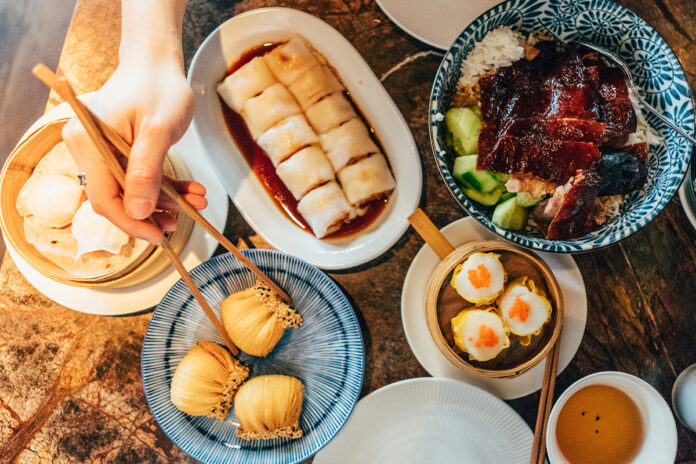
Chinese cuisine offers a rich tapestry of flavors and histories, with essential dishes embodying the traditions and cultures of the region. You will discover unique flavors and experiences when exploring these best Chinese dishes that have their own stories. Some of these dishes are deeply rooted in history while others have evolved over time, still capturing the essence of traditional Chinese recipes.
Peking Duck ─ The Iconic National Dish
Peking Duck holds a prestigious spot among popular Chinese dishes. Known for its crispy skin and succulent meat, this dish traces its origins back to the imperial kitchens of the Ming Dynasty. Traditionally served with thin pancakes, hoisin sauce, and sliced vegetables, Peking Duck symbolizes luxury and indulgence in Chinese dining culture.
Mapo Tofu ─ A Spicy Delight from Sichuan
For those who enjoy bold flavors, Mapo Tofu is a must-try. This Sichuan creation features soft tofu simmered in a spicy sauce made from doubanjiang (fermented broad bean paste) and minced meat, typically pork or beef. The dish embodies the fiery spirit of Sichuan cooking, making it one of the best examples of spicy traditional Chinese recipes that exhilarate the palate.
Dim Sum ─ A Cultural Experience from Cantonese Cuisine
Dim Sum represents a delightful way of dining that revolves around small plates of varied dishes. Originating from Cantonese cuisine, the experience of enjoying Dim Sum goes beyond merely tasting food; it emphasizes social interaction. Popular Chinese dishes found in a Dim Sum meal can include dumplings, buns, and spring rolls, each presenting a unique taste and texture.
Fried Rice ─ The Versatile Staple with Global Influence
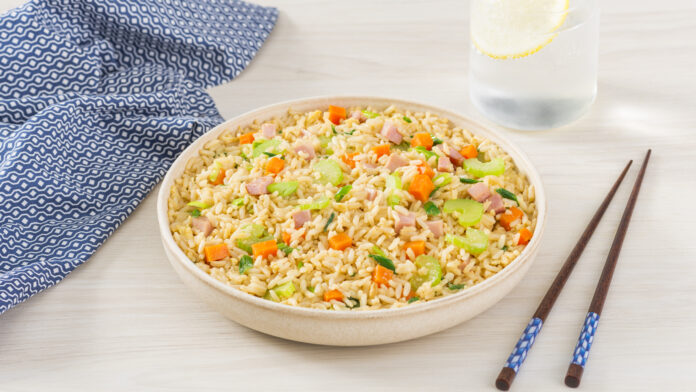

Fried Rice is not just a staple of Chinese cuisine, but also a global favorite. This dish showcases the versatility of traditional Chinese recipes, as it allows for the incorporation of various ingredients based on regional preferences. The history of fried rice can be traced back to the Sui Dynasty, illustrating its significance as an adaptable and beloved component of Chinese culinary heritage.
As you explore these iconic dishes, remember that each meal represents more than just a taste of China; it’s a doorway into understanding the rich cultural and historical fabric that makes Chinese cuisine so unique. If you’re eager to delve deeper into this fascinating world of flavors and traditions, click here to discover more about the incredible culinary heritage that continues to inspire food lovers around the globe.
Conclusion
In your journey through the rich tapestry of Chinese cuisine, you’ve uncovered not just essential dishes but the very essence of Chinese culinary heritage. Exploring Chinese cuisine reveals a complexity that echoes the history and culture of a civilization that has thrived for centuries. From the crispy skin of Peking Duck to the rich flavors of Mapo Tofu, every dish represents a story, a tradition, and a dynamic connection to the land it hails from.
FAQ
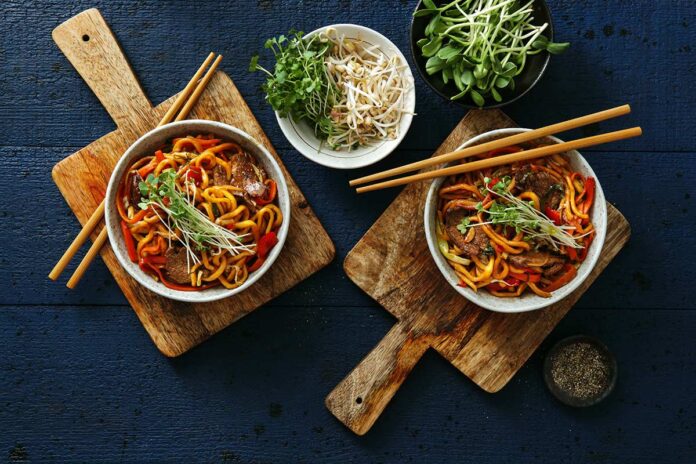

What is the significance of Chinese cuisine in world culture?
Chinese cuisine holds immense significance globally due to its intricate flavors, diverse regional variations, and deep-rooted culinary traditions that date back thousands of years. It reflects the history, health beliefs, and cultural practices of the Chinese people, making it a rich culinary heritage worth exploring.
What are some must-try dishes in authentic Chinese cuisine?
Essential dishes to try include Peking Duck, known for its crispy skin and rich flavor; Mapo Tofu, famous for its bold and spicy character from Sichuan Province; Dim Sum, offering a social dining experience with diverse small plates; and Fried Rice, a versatile staple that has evolved globally.
How has the perception of Chinese cuisine changed over time?
The perception has shifted from being relatively unknown in Western countries to becoming a beloved global phenomenon. Many still associate Chinese food primarily with Cantonese takeout, but understanding traditional recipes reveals a much more complex and diverse culinary landscape rich in history and culture.

